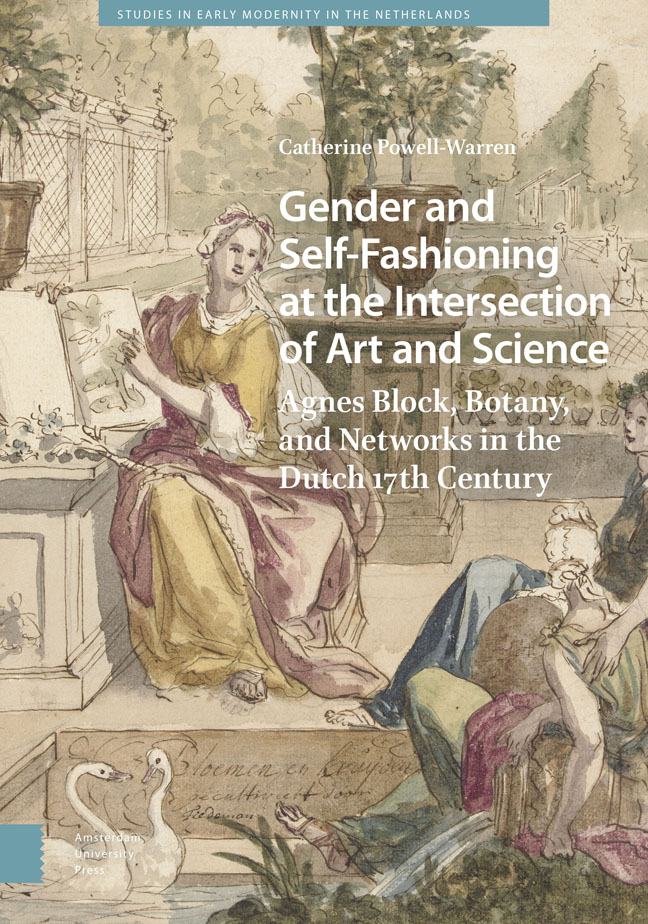 Gender and Self-Fashioning at the Intersection of Art and Science
Gender and Self-Fashioning at the Intersection of Art and Science Published online by Cambridge University Press: 20 February 2024
Abstract: This chapter concerns the public sphere of early modern botany and women’s place in it. The development of natural history was collaborative and depended on networks of individuals who exchanged specimens, knowledge, theories, and experiments in a public sphere. Increased institutionalization during the second half of the seventeenth century resulted in the marginalization of women, who were largely excluded from university and professional academies. As demonstrated by Agnes Block’s inclusion in the botanical treatises authored by the men in her network and Maria Sibylla Merian’s publications on flora and entomology, however, women were not altogether excluded from the public sphere of botany. Nevertheless, even when they did succeed, their achievements were framed in gendered terms.
Keywords: garden as laboratory; gender and natural history; early modern women and science; botany as collaboration; institutionalization of natural history; public sphere of botany
As noted in chapter 2, the period of time spanning Block’s adult life was a time of curiosity and fascination about nature, and empiricism—in the Republic, and throughout Europe. Whereas the earlier chapters established Vijverhof’s centrality in Block’s self-fashioning and self-representation as Flora Batava and its place in Dutch culture, this chapter shows that Vijverhof was also a site of knowledge creation, exchange, and community. The estate was an intermediary in Block’s most important relationships and it served as a platform for her extensive network of experts and amateurs. These networks, in turn, were essential to her achievements as an amateur botanist, and in her self-fashioning as Flora Batava.
This chapter sets out the collaborative nature of early modern botany and examines Block’s participation in that enterprise in that context, a participation that was complicated and hindered by her gender. It was by establishing productive relationships with individuals who did have access to resources and institutions (i.e., men) that Block was able to claim her place as an influential and productive member of a “garden circuit” that was arguably one the seventeenth century’s most important organs of the production of botanical knowledge.
Early Modern Botany: A Collaborative Enterprise
The development of botanical knowledge during the early modern period was a collaborative enterprise that emerged through public debate and exchange. As Brian Ogilvie noted, “it could be the product only of a community.”
To save this book to your Kindle, first ensure [email protected] is added to your Approved Personal Document E-mail List under your Personal Document Settings on the Manage Your Content and Devices page of your Amazon account. Then enter the ‘name’ part of your Kindle email address below. Find out more about saving to your Kindle.
Note you can select to save to either the @free.kindle.com or @kindle.com variations. ‘@free.kindle.com’ emails are free but can only be saved to your device when it is connected to wi-fi. ‘@kindle.com’ emails can be delivered even when you are not connected to wi-fi, but note that service fees apply.
Find out more about the Kindle Personal Document Service.
To save content items to your account, please confirm that you agree to abide by our usage policies. If this is the first time you use this feature, you will be asked to authorise Cambridge Core to connect with your account. Find out more about saving content to Dropbox.
To save content items to your account, please confirm that you agree to abide by our usage policies. If this is the first time you use this feature, you will be asked to authorise Cambridge Core to connect with your account. Find out more about saving content to Google Drive.